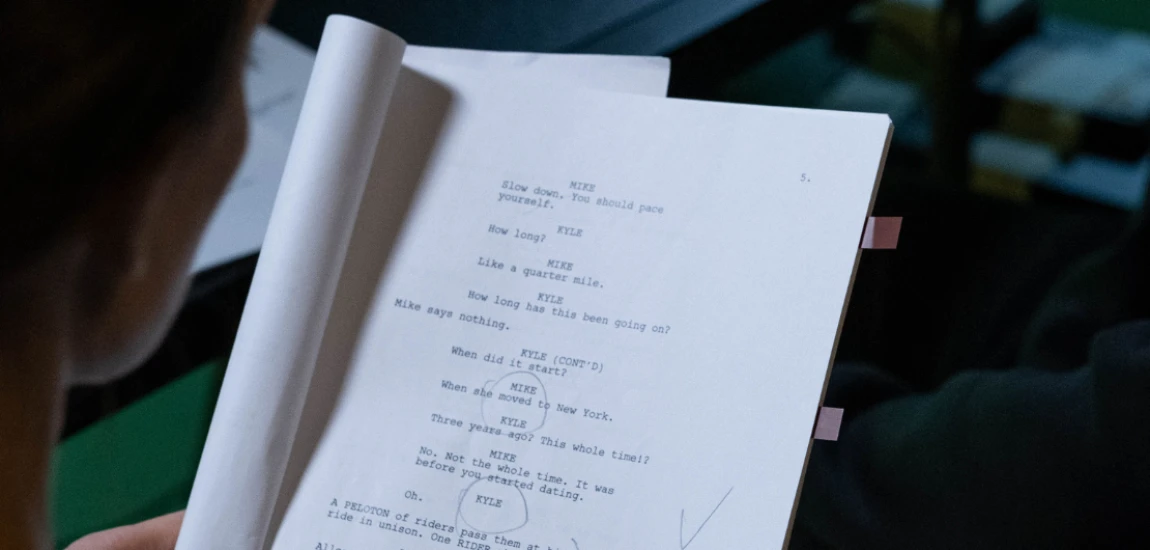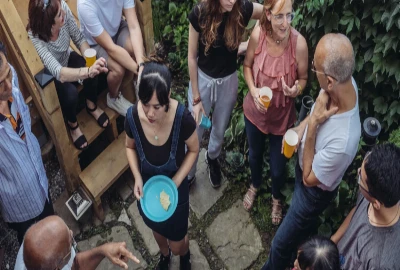Scripted Authenticity: Why ‘Realness’ in Reality TV Is a Carefully Built Illusion

Reality TV has always thrived on the promise of raw, unfiltered truth. From dating shows to survival competitions, audiences are drawn to the idea that what they see is “real.” Yet the truth is far more complicated. Behind every dramatic pause, heated argument, or surprise elimination lies a carefully orchestrated production designed to feel authentic while staying entertaining.
This paradox is what industry insiders call scripted authenticity—a blend of improvisation, selective editing, and staged scenarios that maintain the illusion of reality while still guaranteeing compelling television. Viewers may laugh, cry, or gasp, but much of what unfolds has been shaped, if not scripted outright, by producers.
So why do audiences keep buying into this illusion? And how do reality TV creators maintain the delicate balance between spontaneity and manipulation? Let’s peel back the curtain on scripted authenticity in reality TV and explore how “realness” is manufactured for mass entertainment.
Casting: Building Characters, Not Just Contestants

Reality TV may claim to cast “ordinary people,” but producers know better. The right casting choices can make or break a season.
The Archetype Formula
Most shows follow a character template: the villain, the underdog, the hero, the comic relief. These archetypes help audiences quickly connect and choose sides, turning contestants into story-driven characters rather than just participants.
The Power of Personality
Casting directors deliberately look for big personalities—people who will argue, flirt, or cry on cue. These traits ensure drama, keeping viewers invested in how conflicts unfold.
Pre-Storyboarding Through Casting
Even before filming begins, producers anticipate storylines based on cast dynamics. If two contestants have opposing worldviews or fiery tempers, they’re put in situations designed to ignite conflict. In this way, casting itself becomes an early form of scripting.
Production Manipulation: Shaping the “Unscripted”

Once the cameras roll, the illusion of spontaneity begins. While reality shows rarely hand contestants a written script, they guide them in ways that blur the line between real and staged.
Framing the Scene
Producers decide who shares a hotel room, who sits next to whom at dinner, and what questions are asked during confessionals. These subtle nudges increase the likelihood of dramatic confrontations.
Feeding the Drama
Contestants are often asked leading questions or encouraged to “revisit” a topic to ensure a conflict is captured on camera. Alcohol is sometimes provided freely, lowering inhibitions and heightening emotions.
Manufacturing Suspense
Even mundane events can be transformed into nail-biting drama. By filming multiple takes, adjusting background music, and capturing reaction shots, producers make ordinary moments feel extraordinary.
The Edit: Where Reality Becomes Story

The editing room is where scripted authenticity truly comes alive. With hundreds of hours of raw footage, editors wield the power to reshape reality.
Selective Storytelling
Editors piece together clips to fit overarching narratives. A contestant who makes a sarcastic comment in passing might be portrayed as a season-long “villain” once those moments are spliced together strategically.
Frankenbiting Techniques
One common trick is frankenbiting, where sentences are stitched together from different clips to create dialogue that may never have happened. This technique heightens drama but distorts reality.
The Role of Music and Sound
Adding suspenseful music, dramatic pauses, or exaggerated reaction shots influences how audiences interpret events. A playful argument can be edited into a serious feud depending on the soundtrack layered beneath it.
The Audience’s Role in Believing the Illusion

If reality TV is carefully constructed, why do audiences still believe in its authenticity? The answer lies in how viewers process entertainment.
Suspension of Disbelief
Much like watching a movie, audiences willingly suspend disbelief. They know not everything is “real,” but the emotional payoff—laughter, outrage, or inspiration—keeps them engaged.
Parasocial Relationships
Reality TV thrives on intimacy. By seeing contestants cry in confessionals or share personal stories, viewers feel emotionally invested. This illusion of closeness makes the narrative feel more authentic.
Social Media Amplification
Fans extend their investment by following contestants on social platforms, where behind-the-scenes content often reinforces the “realness” of what they saw onscreen, even when it’s curated.
Ethical Questions Around Scripted Authenticity

The blending of reality and fiction raises significant ethical concerns. While reality TV entertains, it also blurs boundaries between truth and manipulation.
Contestant Well-Being
Editing can misrepresent contestants, branding them as villains or fools. This portrayal often follows them into real life, leading to online harassment or mental health challenges.
Audience Deception
When reality TV markets itself as unscripted but relies heavily on producer manipulation, audiences are misled. The blurred line between fiction and fact can erode trust in media overall.
Responsibility of Networks
Networks must balance profitability with ethical responsibility. Increasingly, calls for transparency and contestant protection are shaping how reality shows are produced and marketed.
The Future of Reality TV and Scripted Authenticity

Reality TV isn’t going away—in fact, it’s evolving. But the future of scripted authenticity will depend on how well producers adapt to audience demands for transparency.
Hybrid Formats
Newer formats mix traditional unscripted drama with clear acknowledgment of production involvement. Shows like mockumentaries or “reality-inspired” scripted series lean into the illusion, rather than pretending it doesn’t exist.
Smarter Audiences
Today’s viewers are more media-savvy. They recognize editing tricks and production manipulation. This awareness forces producers to become more creative in balancing authenticity with entertainment.
Beyond Television
With TikTok, YouTube, and livestreaming, the future of “reality” may lie in platforms where authenticity feels harder to fake. Yet even here, creators carefully curate what audiences see—proving that scripted authenticity is everywhere.




